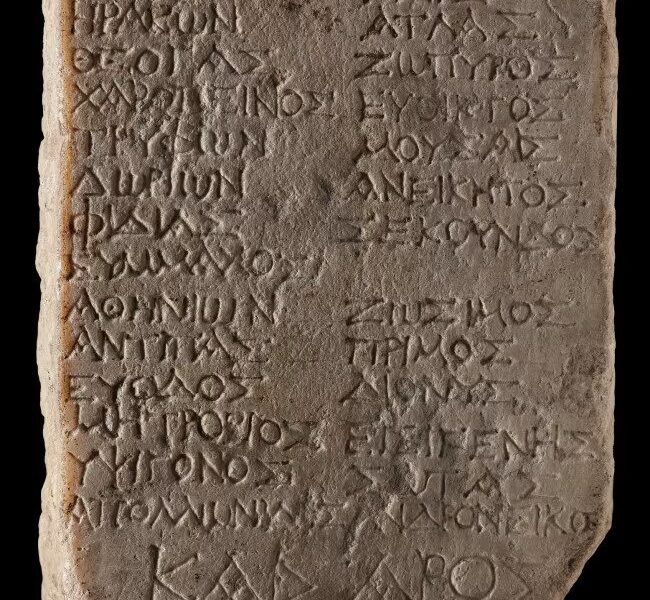Historians have discovered that an ancient Greek inscription on a marble slab in a museum collection is a rare, previously unknown “graduate school yearbook” type list of names.
Experts looked at the stone, which has been stored in the National Museums Scotland (NMS) collection for more than 100 years, as part of a project to publish English translations of inscriptions from ancient Athens held in UK collections.
They discovered that the carved letters on the marble in the NMS collection record the names of young men inducted into the ephebate, a year of military and civic training undertaken around the age of 18, which was intended to prepare them for life as adults.
It lists a group of 31 friends who went through the Athenian ephebate together during the reign of the Roman Emperor Claudius (AD 41-54) and was intended to commemorate the close relationships they had formed.
Dr Peter Liddel, professor of Greek history and epigraphy at the University of Manchester, the discovery.
“It turned out to be a list of the cadets for one particular year during the period 41-54 AD, the reign of Claudius, and it gives us new names, names we’d never come across before in ancient Greek, and it also gives us among the earliest evidence for non-citizens taking part in the ephebate in this period.
“It is a really interesting inscription, partly because it’s new but also because it gives us new names and a bit of insight into the sort of access or accessibility of this institution which is often associated with elite citizens.”
It’s the ancient equivalent of a graduate school yearbook.
It is not known where the list was displayed but it is thought it could have been put up somewhere such as the gymnasium where the young men trained.
Dr Liddel said: “It was made to create a sense of camaraderie and comradeship among this group of people who had been through a rigorous training programme together and felt like they were part of a cohort.
“It’s the ancient equivalent of a graduate school yearbook, although this is one which is created by a number of individuals who wanted to feel like they had come together as friends.”
The inscription is published this week on the website www.atticinscriptions.com
Experts said the discovery represents an important new source of information about elite Athenian society in the mid-first century AD, a period that was crucial for Athens as it adapted to its place under the Roman Empire.


